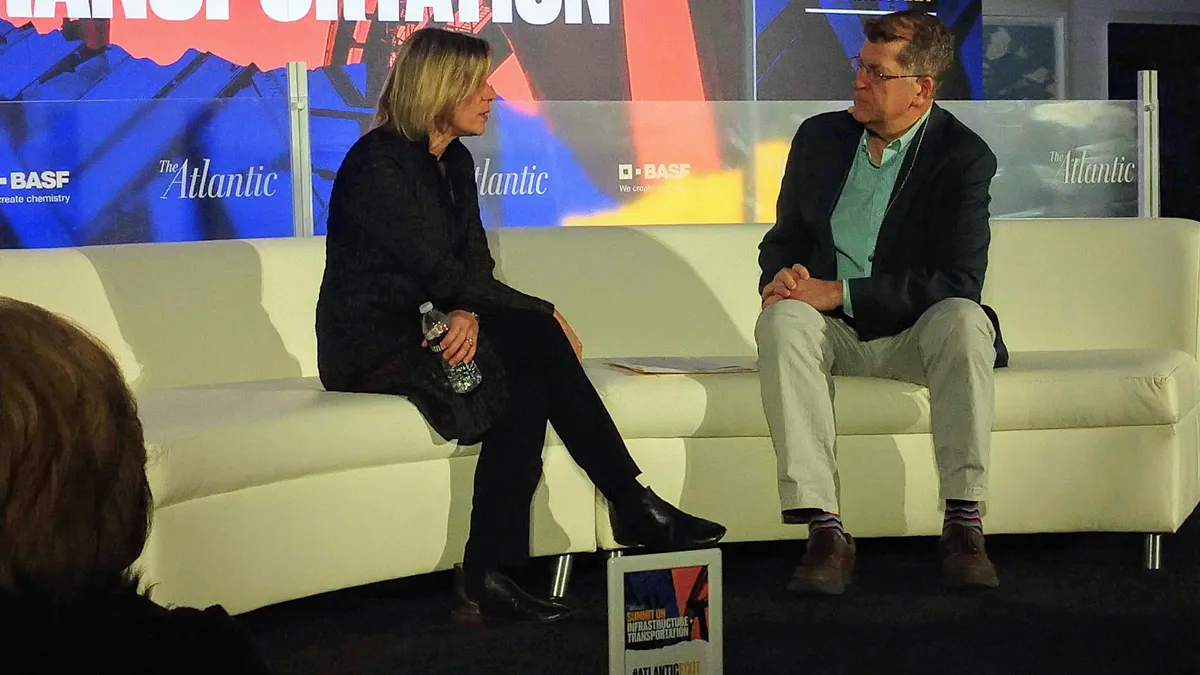Dive Brief:
- A proposal floated by the Trump administration to end the tax credit for the purchase of electric vehicles (EVs) has come under fire from industry leaders and electrification advocates.
- In a briefing with reporters last week, National Economic Council Chair Larry Kudlow said the $7,500 tax credit would be re-examined. "We are going to be looking at certain subsidies regarding electric cars and others — whether they should apply or not. I can’t say anything final about that, but we’re looking into it,” Kudlow said.
- During an on-stage interview at the Infrastructure and Transportation Summit hosted by The Atlantic in Washington, DC, CEO of electric charging company EVgo Cathy Zoi said that the tax credits have helped get more people into EVs. "[The] costs are still coming down, so the tax credit is a perfect way to ease Americans — and frankly people around the world — into electrified transportation," Zoi said.
Dive Insight:
During his remarks, Kudlow indicated the re-examination of the EV tax credit comes in part because of Trump’s "disappointment" at General Motors (GM) cutting U.S. jobs and shifting toward building more EVs and autonomous vehicles (AVs). The tax credit goes directly to the consumer, helping lower the price on the first 200,000 EVs sold by a manufacturer.
But it has come under attack separately in Congress, with U.S. Sen. John Barrasso, R-WY, introducing legislation to end it and redirect the tax credits elsewhere. Automakers like Tesla and GM have opposed that legislation, while utilities have written to members of the U.S. House of Representatives arguing the cap must be lifted to encouraged more EV purchases nationwide. That view was echoed in another letter last month led by the EV Drive Coalition.
"[Because] of the 200,000-per-manufacturer cap, which some automakers are beginning to reach, consumer choice is constrained, limiting the pool of electric vehicles from which to choose," the letter reads. "Lifting the cap will ensure consumers maintain equal access to purchase the car they want."
For her part, Zoi said the tax credit helps the environment and the economy. "We've seen that be a very, very effective policy instrument in other energy sources, and now it's being applied to cars, which is going to both improve the environment and help the US economy," she said. "That's a good thing." She added that the private sector has continued to look towards a future that uses more renewable energy, echoing GM’s view that the road toward electrification will not stop.
Despite the apparent uncertainty swirling at the federal level, including Trump dismissing his own scientists’ findings about the potential impacts of climate change, Zoi said there have continued to be moves toward a cleaner economy in Congress. "When it comes to the Department of Energy, the Congress continues to fund a cleaner economy," she said. "The world I used to preside over at [the Office of Energy Efficiency & Renewable Energy], Congress keeps investing in those resources of energy efficiency and renewable energy, to keep moving it along. So, how about that?"















